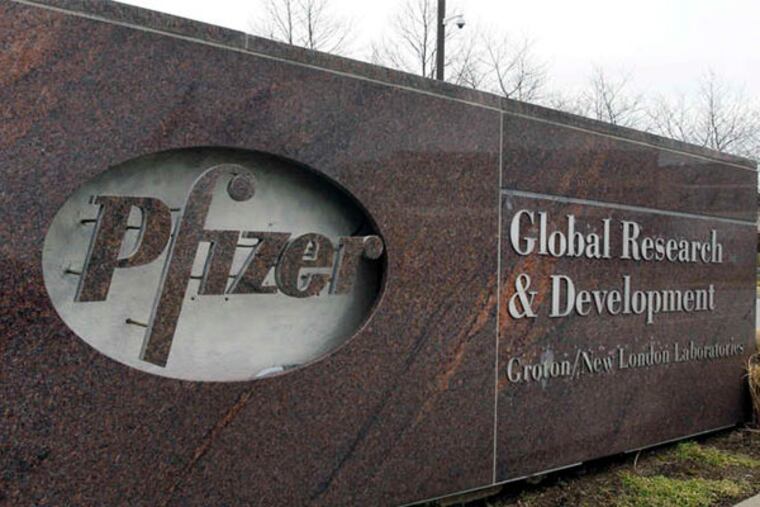Drugmaker Pfizer fails to escape costly asbestos case
Diversifying a business can make sense, but Wednesday presented an example of diversification gone awry. Pfizer Inc. is the world leader in selling prescription medicine and has a big operation in Collegeville. But part of its legion of lawyers was in federal bankruptcy court in Manhattan handling a $964 million settlement fund of cash and assets for some - but not all - people claiming harm from asbestos.

Diversifying a business can make sense, but Wednesday presented an example of diversification gone awry.
Pfizer Inc. is the world leader in selling prescription medicine and has a big operation in Collegeville. But part of its legion of lawyers was in federal bankruptcy court in Manhattan handling a $964 million settlement fund of cash and assets for some - but not all - people claiming harm from asbestos.
The asbestos was contained in insulation used in blast furnaces for steel-making.
What does Pfizer have to do with making steel?
Nothing, anymore.
But Pfizer used to have a minerals, pigments and metals division and, in 1968, it bought Quigley Company Inc., which made insulation for heavy industry.
Quigley's Insulag contained asbestos. Asbestos can cause lung cancer when the small fibers are inhaled by people working with the material. Quigley stopped production at its facility in Old Bridge, N.J., in 1992. When it filed for bankruptcy in 2004, Quigley faced more than 160,000 lawsuits, most related to asbestos and product liability.
Pfizer has spent the nine years since arguing that bankruptcy law protects it from such lawsuits.
On Monday, the U.S. Supreme Court declined to hear Pfizer's appeal of a decision by the U.S. Court of Appeals for the Second Circuit, which said the lawsuits could go forward. On Wednesday, federal Judge Stuart Bernstein approved a plan for Quigley to exit bankruptcy, with Pfizer contributing the nearly $1 billion to the settlement fund.
But many lawsuits are not part of that settlement and Pennsylvania law and plaintiffs are part of this legal landscape.
Lawyer Peter Angelos gained fame and wealth (enough to buy the Baltimore Orioles baseball team) in part by representing steelworkers exposed to asbestos at the Bethlehem Steel Co. plant in Sparrows Point, near Baltimore. But Angelos' firm, which has a Center City office, also sued on behalf of workers at the company's plant in Bethlehem, Northampton County, starting in 1999.
"Once a company attaches its name - Pfizer, in this case - to letterhead and advertising, it becomes liable for those products, even though its primary business is pharmaceuticals," Angelos said Tuesday night.
Diversification goes in waves, and Pfizer has been divesting itself of other non-core businesses lately, though they were closer to human pharmaceuticals. Spokesman Chris Loder said in a statement that Pfizer was disappointed the Supreme Court did not take the case, but noted the federal courts did not decide the underlying merits of the individual lawsuits, which Pfizer will contest.
"Pfizer played no role in manufacturing, distributing or selling Quigley products," Pfizer's statement said. "In the history of this litigation, Pfizer has never been found derivatively or directly liable for injuries allegedly caused by Quigley's asbestos-containing products."